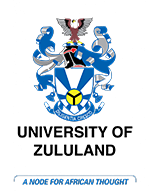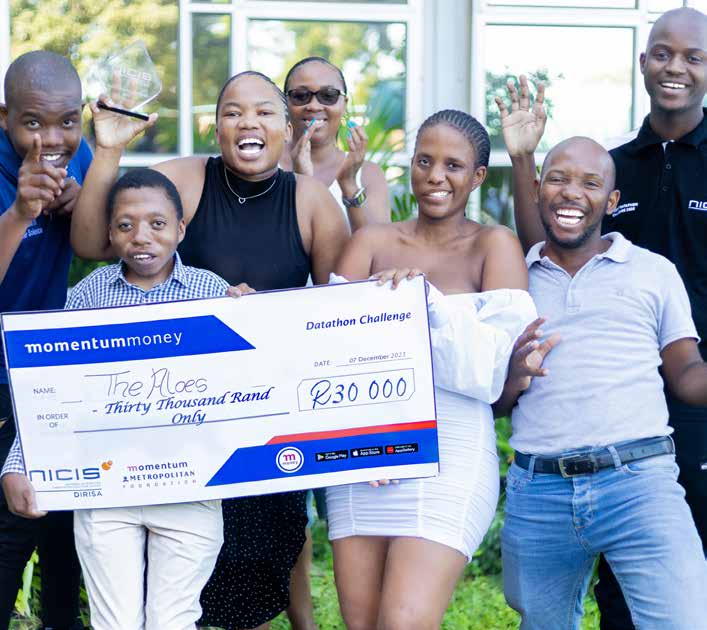A team of six University of Zululand (UNIZULU) students who participated in the recent Data-Intensive Research Initiative of South Africa (DIRISA) Student Datathon Challenge took second and third positions in the technical and research poster segments of the competition, bagging a total of R34 000 in cash.
In addition, the six gained elementary knowledge on developing software applications – incorporating data sciences, artificial
intelligence and other leading-edge technologies to devise innovative and creative solutions to the country’s pressing socioeconomic issues.
DIRISA is one of the three pillars of the National Integrated Cyber Infrastructure System (NICIS). The NICIS is a national initiative of the Department of Science and Innovation implemented by the Council for Scientific and Industrial Research (CSIR).
The Student Datathon Challenge forms part of the NICIS and DIRISA’s efforts to foster the development of human capacity in cyber infrastructure and the application of cyber infrastructure in contributing to the transformation of this sector.
The challenge primarily targets university students, who form university teams that are pitted against others. Competing for cash prizes in the research and technical segments, teams are tasked with formulating groundbreaking solutions to the socioeconomic matter chosen for that year, through analysing open data.
They first attend a five-day preparation programme where they are introduced to topics such as Google Colab, Python and Pandas, data exploration, and data visualisation, among others. In this year’s challenge, participants tackled youth unemployment.
Team UNIZULU, whose group name was the Aloes, was divided into two sub-teams. Four members dealt with the technical aspects, while the remaining two created the research poster.
Xolo Sibaya, who was on the research sub-team, explained that through analysing the data, the Aloes discovered there was a huge job creation gap that contributed majorly to the prevalence of unemployment.
“We also found that SMEs create the most employment in developing countries and that funding was one of the main obstacles faced by them regarding job creation.
These revelations guided the team to developing a model of a web application that connected SMEs with other SMEs for collaboration; connected SMEs with funders; and had a function that leveraged AI to analyse the quality of an SME’s business plan in order to increase the chances of them securing funding and mitigating the effects that exist. The aim of our solution was to enable these enterprises that already create the most jobs to further generate employment,” Sibaya said.
The uniqueness of the proposed solution earned them a quick nod from the judging panel. The technical sub-team won R30 000 courtesy of Momentum, while the research sub-team received a R4 000 cash prize sponsored by Spectrum.
This achievement, noted technical sub-team members Simphiwe Majola and Nonjabulo Khuzwayo, was testament to the fact that hard work yields
favourable results. The team sacrificed sleep and a meal in preparation for their presentations on the official day of the competition. “The fact that we were able to learn in six months what the other university teams study as part of their degrees, and then win, was amazing. The whole experience was great; we got good exposure,” Majola said.
Having witnessed the Aloes’ determination and tireless efforts throughout the competition, Nombuso Sibeko, a lecturer in the Computer Science Department who mentored the team, said she couldn’t be prouder of the students. She added that their victory was well-deserved.
by Naledi Hlefane

